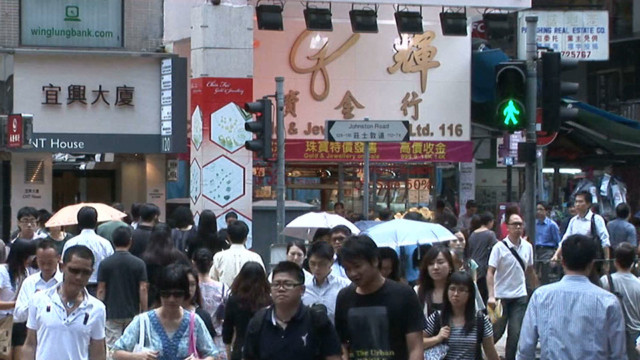Surviving on the streets — that’s what more people are having to do in Hong Kong.
As CGTN’s Frances Kuo reports, rocketing rents are making everyday living a struggle.
This is home for Cheung Muk-Gun – a wooden shack under a highway. And it’s illegal to live here.
This is one of the poorest areas of Hong Kong, but Cheung says it actually used to be worse.
“The place I sleep in has become a lot more stable, it used to be so unpredictable,” said Cheung.
Seventy-two year old Cheung doesn’t have much of a home, but he does have a job. He works seven days a week at a frozen meat store.
“I’m old. I don’t rely on the government, I rely on my two hands,” said Cheung.
He earns about $1300 a month, still short of an average rent for a local apartment of 23 square meters.
It’s a sign of an expanding gap in wealth in Hong Kong, one of the most expensive cities in the world.
According to one Hong Kong real estate agency, in 2017, home prices jumped to an average of more than $1400 per square foot. That’s nearly 50 percent higher than in 1997.
With those kinds of rates, some residents have little choice where to live.
Social worker Ng Wai-Tung estimates a quarter of Hong Kong’s homeless population are so-called McRefugees.
It’s a name given to those who don’t just eat at fast-foot restaurants but sleep there.
“You can sleep properly at a 24-hour chain restaurant,” said Ng. “That’s why I’m very grateful of McDonald’s who look after the homeless and are not forcing them to leave. But I believe it’s the government’s responsibility and it shouldn’t be the responsibility of private businesses (to deal with the homeless).”
The government provides shelters and subsidized housing for the homeless.
But critics say caps on the time they can stay provide only short-term relief.
Meantime, Cheung continues to survive on the streets – living day by day.
Arthur Holcombe talks about homelessness in China
CGTN’s Susan Roberts talks with Arthur Holcombs of the Poverty Alleviation Fund in Boston, MA about homelessness in China.
 CGTN America
CGTN America

